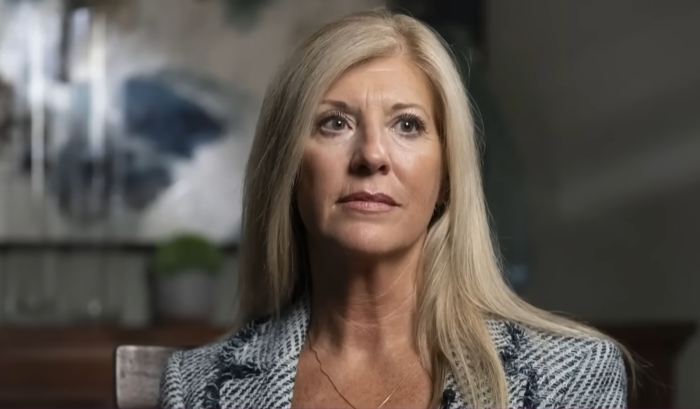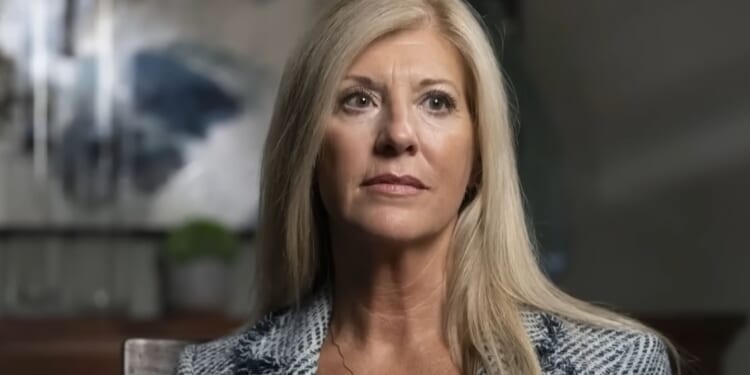
Texas’ Fifth Court of Appeals in Dallas has halted all trial court proceedings in child-sex abuse survivor Cindy Clemishire’s defamation lawsuit against Gateway Church in Southlake, Texas, the church’s founder, Robert Morris, and its independent elders until a petition for a mandamus review is resolved.
“We GRANT relators’ motion to the extent that we STAY all proceedings in the trial court between relators Gateway Church, John D. (‘Tra’) Willbanks, III, Kenneth W. Fambro, II, and Dane Minor and real parties in interest Cindy Clemishire and Jerry Lee Clemishire, pending resolution of this original proceeding,” Dallas Appeals Court Justice Mike Lee wrote in his two-page order last Friday. “We request real parties in interest and respondent to file a response, if any, to the petition for writ of mandamus by December 29, 2025.”
A writ of mandamus is an order “issued by a court to compel performance of a particular act by a lower court or a governmental officer or body, usually to correct a prior action or failure to act.”
The petition for mandamus review was filed on Nov. 14 by attorneys for Gateway Church and their independent elders John D. “Tra” Willbanks, Kenneth W. Fambro II and Dane Minor. It came after Dallas County District Court Judge Emily Tobolowsky rejected a motion from the church and elders to dismiss the Clemishires’ lawsuit, citing the ecclesiastical abstention doctrine, which holds that courts lack jurisdiction over matters of religion.
On Nov. 11, Tobolowsky also granted the Clemishires’ motion for continuance and limited discovery to oppose motions from Gateway Church and the elders to dismiss her lawsuit under the Texas Citizens Participation Act in open court. The TCPA is a 2011 law that protects citizens from lawsuits intended to stifle their First Amendment rights. Tobolowsky’s discovery order prompted Gateway Church and the independent elders to ask the appeals court, in their writ of mandamus, to stay her Nov. 11 order granting the Clemishires’ motion for a continuance and limited discovery.
Ron Breaux, a partner at Haynes Boone and counsel for Gateway Church, insisted in a statement to The Christian Post after proceedings in the case were stayed that Gateway Church should not be part of the Clemishires’ defamation lawsuit.
“We are pleased that the Court of Appeals has granted our request to stay the case against Gateway and the Independent elders while it considers our strong legal arguments. Gateway and its leaders simply do not belong in this lawsuit, which asks a secular court to pass judgment on the church’s statements and actions while investigating its former pastor’s misconduct,” Breaux said.
“As we’ve stated from the beginning, no one in Gateway’s current leadership had knowledge of its former pastor’s criminal behavior, and they have endeavored to lead the church with integrity and accountability during a difficult time. These actions — guided by faith, prayer and a steadfast commitment to the church community — are protected by the First Amendment from secular second-guessing.”
All the defendants in the Clemishires’ defamation lawsuit were ordered to provide written responses and produce documents in response to her proposed discovery requests that focus mainly on internal and external communication church officials engaged in regarding the handling of her child-sex abuse claims against Morris.
Morris was given a six-month prison term and a 10-year suspended sentence during a hearing in Osage County Court, Oklahoma, on Oct. 2, after he pleaded guilty to sexually abusing Clemishire, 55, over 4.5 years in the 1980s, beginning when she was 12. At the time, Morris, who founded Gateway Church in 2000, was serving as a traveling evangelist.
In her defamation lawsuit, Clemishire and her father, Jerry Lee Clemishire, are seeking more than $1 million in damages, alleging that Morris and Gateway Church leaders publicly mischaracterized the abuse she suffered as a consensual “relationship” with a “young lady” instead of the sexual assault of a child after the abuse was made public in 2024.
Before Friday’s appeals court ruling, Clemishire’s attorneys argued in a response filed on Nov. 18 that if the appeals court granted a stay on the discovery, it should apply to the entire case until the mandamus review is resolved.
Gateway Church’s attorneys argued against a stay of the entire case, but Lee appeared to be swayed by the Clemishires’s attorneys’ arguments. The Clemishires’ attorneys also contended that Gateway Church and their independent elders “are unlikely to prevail on their request for mandamus relief.”
“‘Mandamus is an extraordinary remedy’ that is only warranted if Relators show that the trial court ‘abused its discretion and no adequate appellate remedy exists,'” they argue.
“Relators cannot satisfy that demanding standard, because the First Amendment — and by extension, the ecclesiastical abstention doctrine — does not bar either the Clemishires’ lawsuit or the discovery that the Clemishires obtained from the trial court,” they explain.
Despite arguments by Gateway Church and its independent elders, the Clemishires’ attorneys state that her claims “do not implicate church governance, discipline, or matters of doctrine.”
“Nowhere in the Clemishires’ petition do they claim that Gateway Church failed to properly discipline Robert Morris or anyone else. Nor do they claim that Gateway failed to implement certain policies of church doctrine or discipline. Rather, the Clemishires’ claims, at their core, constitute a simple allegation that Gateway and its leaders issued factual, defamatory statements about the Clemishires,” the attorneys argue.
They also note that the Clemishires’ discovery in the case is proper because it is specific and limited.
“Under the TCPA, a trial court may permit limited discovery that is relevant to the motion to dismiss,” they argue.
“The discovery requests prepared by the Clemishires and ordered by the trial court are highly relevant to the issues raised by Relators in their TCPA motions. The specific and limited discovery will allow the Clemishires to investigate Relators’ knowledge of what transpired at the relevant times, which is crucial for a defamation case,” they explain.
“For example, one of the Relators, John D. Willbanks, III, specifically stated that there were individuals who ‘knew without a doubt that Cindy Clemishire was twelve when the abuse began’ and that there were individuals who ‘knew of allegations of sexual abuse by Robert Morris, who had enough information that should have led them to ask more questions, but they did not.’
“At the same time, certain Relators claim that certain public statements were not reviewed or approved by them, even though the statements were attributed to them and later ratified and acknowledged by them. Discovery is appropriate to investigate these assertions and contradictions.”
Contact: leonardo.blair@christianpost.com Follow Leonardo Blair on Twitter: @leoblair Follow Leonardo Blair on Facebook: LeoBlairChristianPost

















